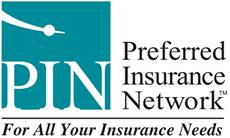When evaluating the reputation of an insurance agency, it’s crucial to delve into various facets that go beyond surface impressions. By scrutinizing online reviews and industry accreditations, you can gain valuable insights into the quality of service and expertise. However, there are hidden indicators that can unveil much about an agency’s standing that may not be immediately apparent. These nuanced aspects play a pivotal role in determining the reliability and trustworthiness of an insurance provider.
Key Takeaways
- Analyze online reviews for service quality and customer satisfaction patterns.
- Check industry accreditations like NAIC, CPCU, and CIC for standards adherence.
- Gather customer testimonials for insights into agency reputation.
- Investigate complaints and regulatory actions for resolution processes and trends.
- Evaluate financial strength, agent credentials, company history, and track record for reliability.
Online Reviews and Ratings
When evaluating the reputation of an insurance agency, one of the key factors to consider is the online reviews and ratings it has received.
Reading through feedback from other clients can provide valuable insights into the quality of service, claims processing efficiency, and overall customer satisfaction levels.
Look for patterns in the reviews to see if there are consistent positive or negative experiences shared by multiple customers. Pay attention to specific details mentioned in the reviews, such as turnaround times, communication effectiveness, and handling of complex situations.
While a single negative review may not be cause for alarm, a pattern of similar complaints could indicate potential issues with the agency’s performance.
Take the time to carefully review and analyze the online feedback to make an informed decision about the insurance agency’s reputation.
Industry Accreditations and Certifications
Industry accreditations and certifications play a crucial role in assessing the reputation of an insurance agency. These credentials demonstrate the agency’s commitment to meeting industry standards and best practices. When evaluating an insurance provider, look for accreditations from recognized bodies like the National Association of Insurance Commissioners (NAIC) or certifications such as Chartered Property Casualty Underwriter (CPCU) or Certified Insurance Counselor (CIC). These designations indicate that the agency and its staff have undergone rigorous training and adhere to ethical guidelines. By holding these accreditations, an insurance agency showcases its dedication to professionalism and excellence in serving clients.
| Accreditations/Certifications | Description | Importance |
|---|---|---|
| NAIC | Demonstrates adherence to industry standards | Essential |
| CPCU | Signifies advanced knowledge in property-casualty insurance | Valuable |
| CIC | Shows expertise in insurance counseling | Beneficial |
Customer Testimonials and Feedback
To gain a more comprehensive understanding of an insurance agency’s reputation, turning to customer testimonials and feedback can provide valuable insights.
By reading about the experiences of past and current clients, you can get a sense of the level of customer service, claims processing efficiency, and overall satisfaction with the agency. Positive testimonials highlighting exceptional service or quick claim resolutions can indicate a reliable agency.
Conversely, a pattern of negative feedback regarding delayed payments or unresponsive agents might raise red flags.
Look for testimonials across various platforms such as the agency’s website, social media pages, or independent review sites to gather a well-rounded perspective on the agency’s reputation from real customer experiences.
Complaints and Regulatory Actions
For a deeper insight into an insurance agency’s reputation, examining complaints and regulatory actions can offer valuable information.
When evaluating an insurance agency, consider the following:
- Customer Complaints: Look for patterns in the types of complaints lodged against the agency.
- Regulatory Violations: Check if the agency has faced any fines or disciplinary actions from regulatory bodies.
- Resolution Processes: Assess how the agency handles complaints and regulatory issues, as this reflects on their commitment to customer satisfaction.
- Trends Over Time: Analyze if the number of complaints or regulatory actions against the agency has been increasing or decreasing.
Financial Strength and Stability
When assessing the reputation of an insurance agency, one crucial aspect to consider is its financial strength and stability. A financially stable insurance agency is better equipped to fulfill its obligations and pay out claims when needed.
To evaluate this aspect, look for the agency’s financial ratings from independent rating agencies like A.M. Best, Standard & Poor’s, or Moody’s. These ratings provide insight into the agency’s ability to meet its financial commitments and weather challenging economic conditions.
Furthermore, review the agency’s financial statements and annual reports to gauge its profitability, liquidity, and overall financial health. By ensuring the insurance agency you choose is financially strong and stable, you can have confidence in its ability to protect your interests when you need it most.
Agent and Staff Credentials
Considering the importance of agent and staff credentials is crucial when evaluating the reputation of an insurance agency. Ensuring that the individuals representing the agency are qualified and knowledgeable can give you confidence in their ability to assist you effectively.
Here are some key points to consider:
- Verify that agents have the necessary licenses and certifications.
- Look for staff members with specialized training in relevant insurance fields.
- Check for any industry awards or recognitions received by the agency or its employees.
- Inquire about the years of experience that agents and staff members have in the insurance industry.
Company History and Track Record
Taking a closer look at the company history and track record of an insurance agency is essential for assessing its reputation.
Research the agency’s founding date, any mergers or acquisitions, and years of operation. A long-standing agency may indicate stability and reliability.
Investigate the company’s track record by reviewing its claims settlement ratio, customer feedback, and any major awards or recognitions received. A consistent track record of fulfilling claims promptly and providing excellent customer service is a positive sign.
Additionally, check for any history of legal disputes or regulatory violations that could impact the agency’s credibility.
A solid company history and a positive track record are key indicators of a reputable insurance agency.
Frequently Asked Questions
Is the Insurance Agency Involved in Any Community Service or Charitable Initiatives?
Do they engage in community service or charitable efforts? It shows their commitment beyond profits. Look for agencies involved in giving back. Your insurance choice can reflect your values and support a socially responsible business.
How Does the Agency Stay Up-To-Date With Emerging Industry Trends and Technologies?
You stay current by attending industry conferences, webinars, and training sessions. Your agency invests in technology upgrades and values ongoing education. This commitment ensures you provide clients with the latest trends, innovations, and best practices in insurance.
Are There Any Exclusive Benefits or Discounts Offered to Long-Term Clients?
You’ll enjoy exclusive benefits and discounts as a long-term client. These perks are just some of the ways we show appreciation for your loyalty. Contact us for more details on how you can save!
What Measures Does the Agency Take to Ensure Data Security and Privacy?
To safeguard your information, the agency employs encryption, secure servers, and regular security audits. Your data is protected from unauthorized access, ensuring your privacy. These measures demonstrate the agency’s commitment to maintaining the confidentiality of your personal information.
Does the Agency Provide Personalized Risk Assessment and Coverage Options?
You can trust the agency to provide personalized risk assessments and coverage options tailored to your needs. They prioritize understanding your unique situation to offer the best protection for you and your assets.
Conclusion
In conclusion, by reviewing online ratings, industry accreditations, customer testimonials, complaints, financial stability, agent credentials, and company history, you can effectively assess the reputation of an insurance agency. Make sure to analyze all aspects thoroughly to make an informed decision about the reliability and service quality of the agency before choosing them for your insurance needs

